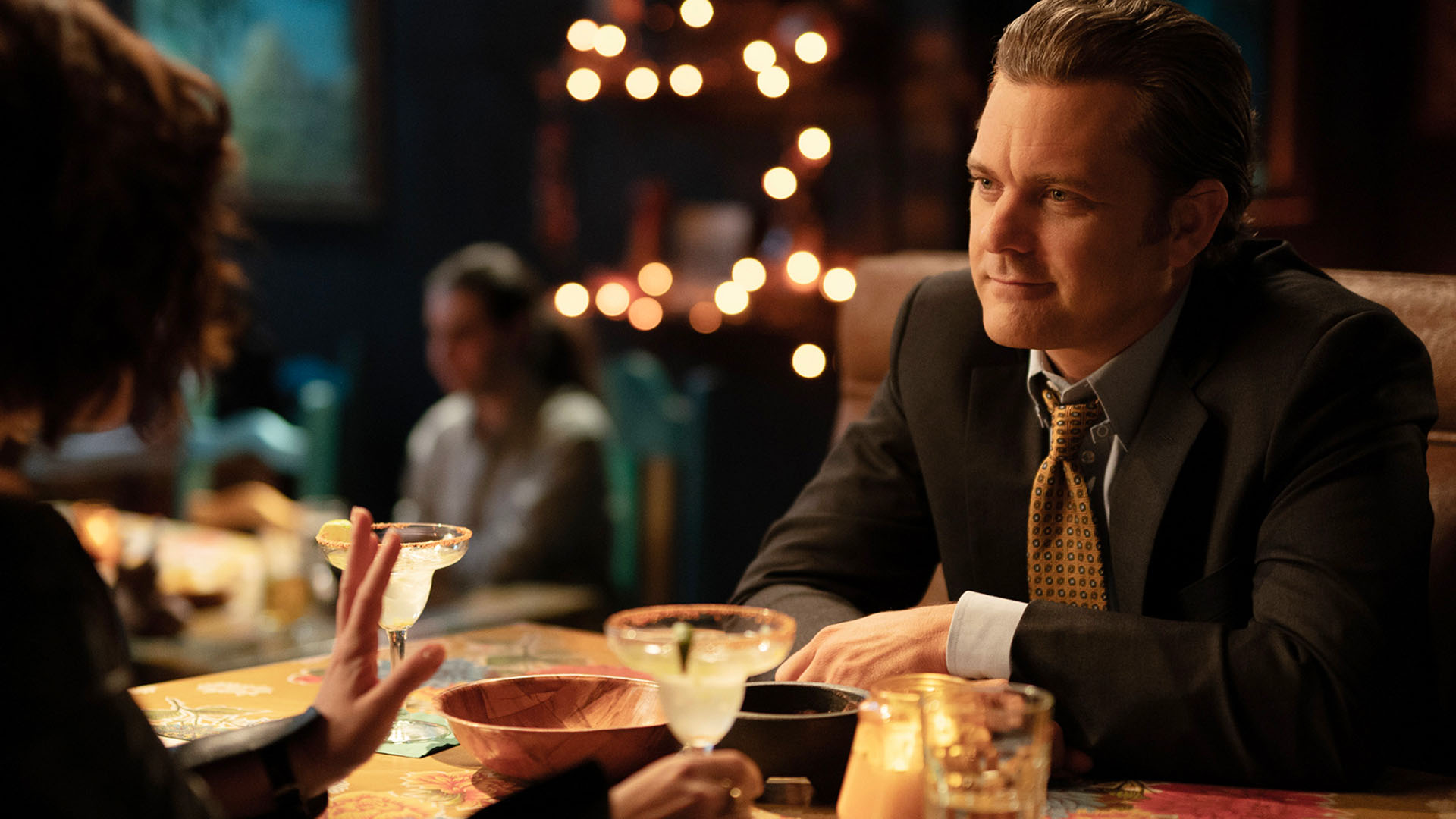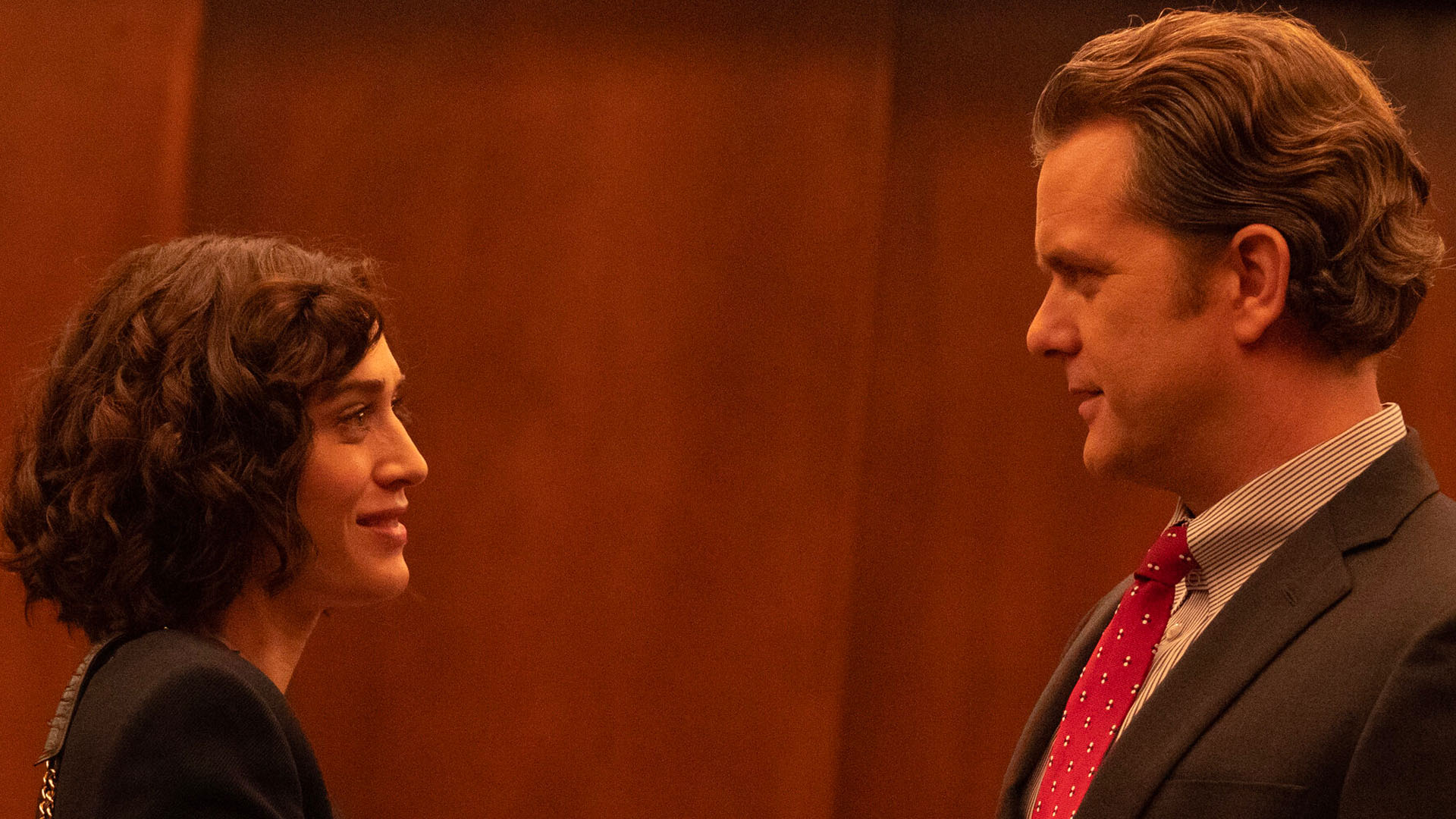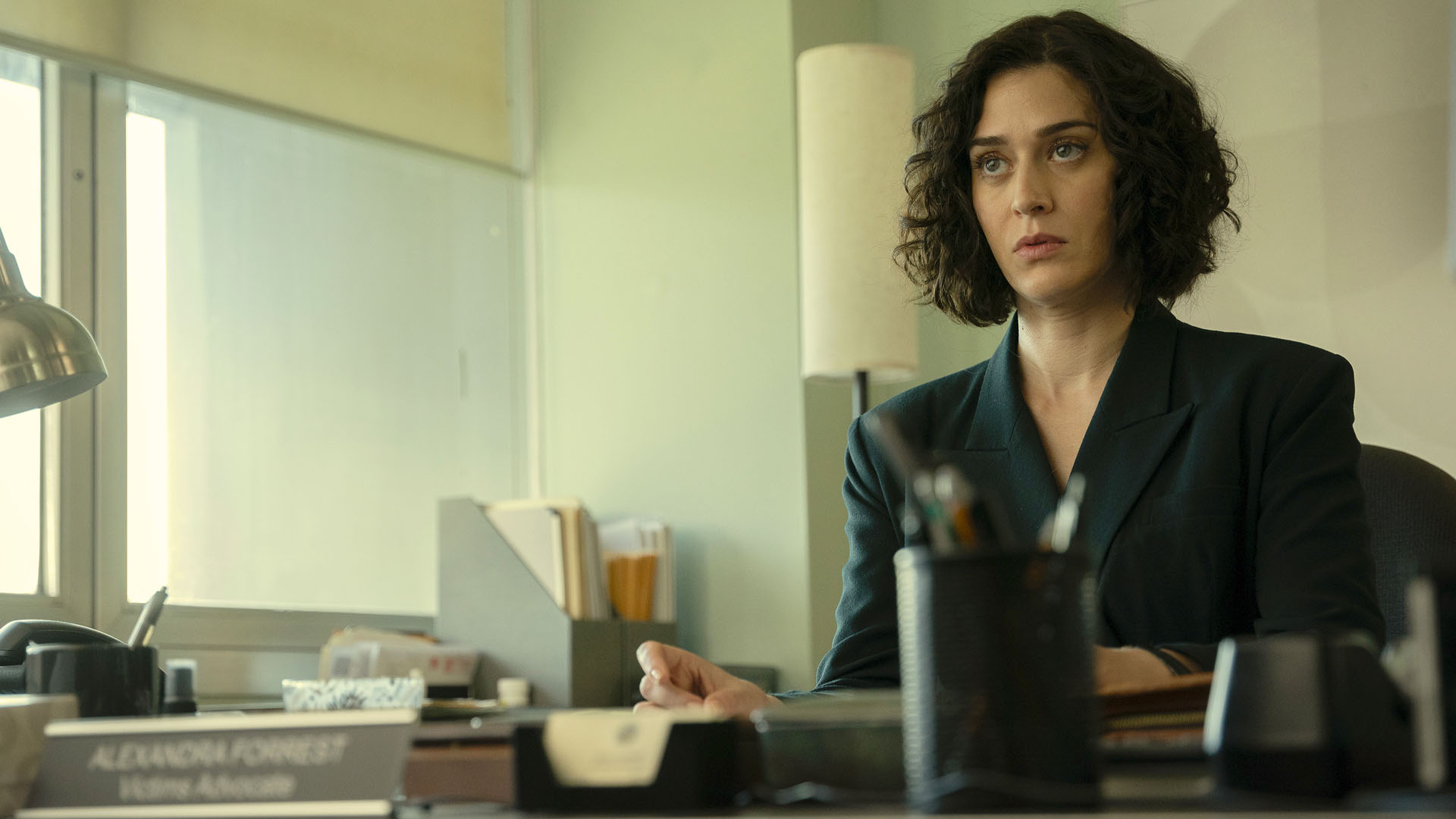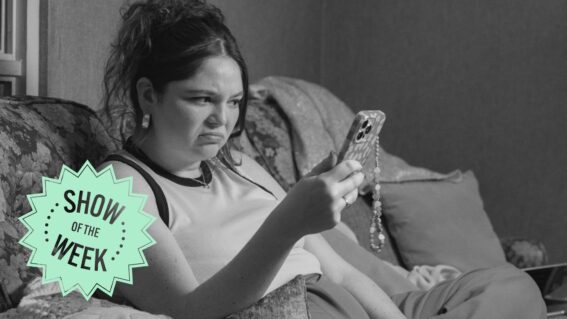Wait, Fatal Attraction 2023 loses the original’s thrills but still doubles down on the misogyny?
Without strong character chemistry or well-crafted filmmaking, this redo of the archetypal erotic thriller is all a bit dull.

Lizzy Caplan and Joshua Jackson step into the shoes of Glenn Close and Michael Douglas in a series adaptation of the classic ’80s erotic thriller Fatal Attraction. Amelia Berry looks back at the original, and why the new series struggles to deliver.
“Sometimes I like to sneak into the theater in the last twenty minutes of the movie. All these men are screaming, ‘Beat that bitch! Kill her off now!’ The women, you never hear them say anything. They are all just sitting there, real quiet.”
Quoted in Susan Faludi’s feminist classic Backlash: The Undeclared War Against American Women, this is an account of a screening of surprise 1987 blockbuster smash, Fatal Attraction. While not quite the highest grossing film of that year (that honour falls to Three Men and a Baby), Fatal Attraction dominated the zeitgeist of late 80s cinema in a way that few other films could touch. Generating countless thinkpieces, watercooler chit-chat, and bringing the phrase ‘bunny boiler’ into the popular lexicon, Fatal Attraction screenings developed something of a reputation as the Rocky Horror Picture Show experience for men who hated women.
Directed by Flashdance’s Adrian Lyne, Fatal Attraction is maybe the archetypal erotic thriller. Dan Gallagher (Michael Douglas) is a successful lawyer, with a young daughter and a beautiful wife, Beth (Anne Archer). One weekend, while his wife is away, Dan has an affair with Alex Forrest (Glenn Close), a sophisticated career woman. But when Dan doesn’t want to take the relationship any further, Alex grows increasingly unhinged, attempting suicide, briefly kidnapping Dan’s daughter, and killing the Gallagher’s pet rabbit (and yes, boiling it). This all culminates in Alex trying to murder Beth in the bath, Psycho-style, and (spoilers for one of 1987’s most popular movies) when Dan is unable to drown Alex in the tub, Beth takes her out herself with a single gunshot to the chest.
It’s lurid stuff, playing at times closer to exploitation or straight-out horror than traditional thriller fare. It’s also far from the original intention behind the film. Throughout the production process, the studio (Paramount) kept pushing for Michael Douglas’ Dan to become more likeable, and Glenn Close’s Alex to become more monstrous. After test screening found audiences baying for Alex’s blood, the original ending with Alex committing suicide was abandoned, with reshoots ordered for this new ending, described by Lyne as “kind of baroque and awful.” Close was even more resistant to the changes, seeing her character as mentally unwell, but ultimately sympathetic, she told executives, “you can take me in a straitjacket but you can’t make me do it.”
However, as film historian Karina Longworth has noted in the brilliant Erotic 80s series of her podcast You Must Remember This, many viewers who saw the film did find Beth, or even Alex Forrest to be a character they related to. New Ending and all. In fact, while primarily thought of as anti-feminist takedown of the new working woman, Fatal Attraction generated all kinds of heterodox readings, from AIDs allegory to metaphor for the ‘devastating power of sex’.
“There wasn’t a correct opinion that shut off all further conversation,” Longworth says, “because of that we can still debate the messages the movie projects, and how it communicates them, and how we feel about that. And I wish movies like Fatal Attraction were being made now, to—for better or worse—freeze in amber 2022’s many unresolved issues between men and women.”
Now, with Paramount Plus remaking Fatal Attraction as an eight part mini-series complete with women-led creative team (director Silver Tree and lead writer Alexandra Cunningham), it seems like maybe the time has come to see a version of the story closer to its original creative vision. Or perhaps, an opportunity for another twisted exorcism of contemporary gender conflicts?
Regrettably, 2023’s Fatal Attraction is maddeningly distant from either of these visions. A groaningly drawn-out crime drama, it manages to cut the thrills of the original while somehow doubling down on the misogyny.
Transformed into a winding whodunnit, the story is split, with modern day Dan (Joshua Jackson a.k.a Pacey from Dawson’s Creek) just released from jail and trying to reconnect with his daughter Ellen (Alyssa Jirrels), claiming it wasn’t him who really killed Alex. Meanwhile, back in 2008 events more or less in line with the ‘87 film take place, with Amanda Peet (2012) as Beth and Lizzy Caplan (Fleishman Is in Trouble) as Alex.

The meandering structure of the series feels almost like it’s modelled on a true crime podcast, with the same few events gone over again and again, drip-feeding in shocking new details, new characters, and lengthy tangents, dialogue from previous episodes often reasserting itself as voiceover. The bland moralism of a lot of true crime is here too, with the villains (women) making grim unmotivated decisions, and the heroes (men) given ludicrously beatific scenes where they scowl disapprovingly at lewd remarks, reassure a grieving family at a court case, or selflessly nurse their dying wife.
Alex is given some tragic backstory (an emotionally abusive father), but is even more cold, calculating, and vicious than in the film, stalking Dan before they meet and committing a bizarre murder. Where Close’s Alex is animalistic, a force of nature, Caplan plays Alex as odd and detached. There’s an effort to give her tells of real-world mental illness (using DBT methods to cope with distress, could this be BPD?) which is, frankly, an insulting, stigmatising, and cynical way to fill out a character that’s basically sexy Norman Bates.

Most of all though, it’s just kind of dull. It was Lyne’s beautiful film-making, the strange water symbolism, the brilliant central performances, that elevated the original from a yuppie’s worst nightmare, into a vital psychodrama, the id wreaking its vengeance on the ego. While the new Fatal Attraction has a ponderous obsession with Carl Jung, it struggles to deliver on anything nearly so archetypal or primally fascinating.
Without strong character chemistry, or well-crafted filmmaking, all we’re left with is a series which seems to be saying, ‘you can bump off one crazy bitch, but another might be just around the corner’. Maybe in 2023 you can still get people screaming at their TVs over something that sexist, but you’ll never get them doing it over something that boring.























